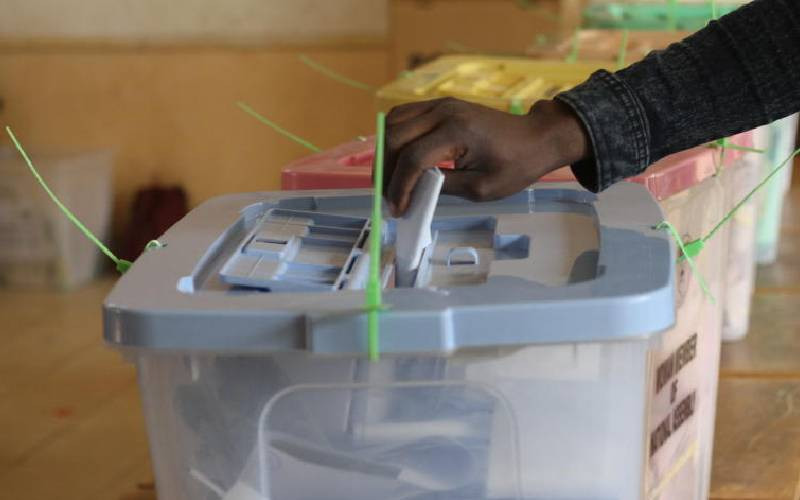A voter casts his vote during the 2022 General election voting at Uhuru Gardens primary school, Langata constituency, Nairobi on August , 2022 [Elvis Ogina,Standard]
×
The Standard e-Paper
Fearless, Trusted News

A voter casts his vote during the 2022 General election voting at Uhuru Gardens primary school, Langata constituency, Nairobi on August , 2022 [Elvis Ogina,Standard]
Our electoral process is cumbersome, costly, mixed up and needs reforms